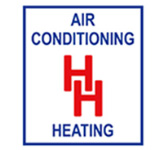
Whether it’s a relaxing vacation or a lengthy trip for work, taking a trip means making plans for your home comfort system. You don't need it if you’re not home, so you can adjust the temperature as needed to conserve your energy use. Just the same, you don’t want to just turn it off for the entire time you're out of the house.
For the most part, it’s ideal to leave your HVAC system running and adjust the temperature depending on the time of year. That way you can reduce energy costs without stressing about coming back to an uncomfortable home. We’ll review why you should leave your HVAC system on as well as the ideal thermostat settings for various times of year.
This Is Why You Shouldn’t Leave Your Thermostat on Hold
While you could be inclined to shut your HVAC system down before a trip, this will sometimes end up causing big problems by the time you come back. This is particularly true when the weather will be severely hot or cold while you’re out of town.
For example, turning the HVAC system off during the summer could lead to very high humidity. Not only will your home feel like a swamp when you return, but it could have also invited mold/mildew growth or pest infestations.
And in the winter, letting your house get cold can lead to pipes freezing or even bursting. It’s exhausting to come home from a vacation only to come across substantial water damage nearby a broken pipe.
Energy-Efficient Thermostat Settings While at Work
You can adjust the temperature even when you're just going to work. Since you’re not home for around 8 hours or so, it doesn’t seem sensible to keep an empty home the same temperature as when you're home. In general, it’s encouraged to turn up the thermostat by 5 degrees or so. This means that if you prefer a comfortable 72 degrees, think about raising it to 76-77 while you’re out.
But you could save even more if you're open to further adjusting the temperature. As reported by the Department of Energy, you may save around 10% on your HVAC expenses by making an adjustment of 7-10 degrees.
Best Thermostat Settings While Away from Home in Summer
If you leave for a lengthier trip in the heart of summer, you can make bigger adjustments. This prevents wasting energy while still defending your home from the hassles that come with leaving it uncooled. Something like 5 degrees is appropriate for shorter trips while a larger adjustment of 10 degrees is ideal if you’ll be away from home for 2 weeks or longer. If you enjoy keeping the house at 72 in the summer, 78-82 should offer beneficial results.
Best Thermostat Settings While on Vacation in Winter
To determine the most energy-efficient thermostat setting for a winter trip, consider lowering the temperature by the same amount you would raise it in summer. 68 is a frequent winter thermostat setting, so adjusting to 63-58 will keep your plumbing safe while restricting how often your furnace runs.
A Smart Thermostat Can Help: Benefits of a Smart Thermostat
An ideal strategy to regulate your home’s HVAC system while out of the house is by investing in a smart thermostat. This special type of programmable thermostat utilizes intelligent software to understand your typical comfort habits. It applies these preferences and makes automatic changes to the schedule for better energy efficiency. And with Wi-Fi connectivity, you can remotely access your HVAC system from a smartphone or tablet.
Smart thermostats are stuffed with features to help you save energy and lower costs. For example, specific models can monitor electricity prices to bolster heating or cooling when prices are more affordable. They can be used with high-efficiency, variable-speed equipment to refine how long your HVAC system needs to run. It’s the perfect tool to enhance how you use your comfort system. If you’re planning on investing in a smart thermostat, there are multiple ways you can reduce your costs, in essence getting a smart thermostat for free. The next time you are away from home, you can appreciate true peace of mind that your HVAC system won’t stir up any trouble while you’re away from home.




